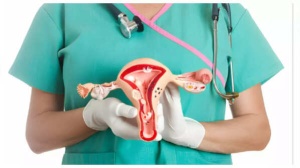Shubhanshu Shukla, an Indian astronaut currently aboard the International Space Station (ISS), is scheduled to interact with students and scientists at the Indian Space Research Organisation (ISRO) on July 4th. This unique event will utilize ham radio technology, offering a direct communication link from space.

Shukla's presence on the ISS is part of the Axiom-4 (Ax-4) mission, a 14-day commercial spaceflight organized by Axiom Space. The mission involves four astronauts conducting groundbreaking scientific research with the potential to revolutionize long-duration human spaceflight.
This interaction is made possible by the Amateur Radio on the International Space Station (ARISS) program. ARISS is an international initiative that fosters live conversations between students and astronauts in orbit, promoting STEM education on a global scale.
The event will be facilitated through a telebridge at the U R Rao Satellite Centre (URSC) in Bengaluru. Communication will be relayed via the K6DUE ground station. The session is scheduled to begin at 3:47 PM IST (10:17 UTC) on Friday.
Ham radio, also known as amateur radio, is a licensed communication system operating on radio frequencies designated for non-commercial use. It is a popular hobby among enthusiasts and serves as a reliable communication method during emergencies when standard channels are unavailable.
In space missions, ham radio provides a dependable and direct communication line between astronauts and individuals on Earth. This interaction adds a personal element to science education, offering students the opportunity to converse with an astronaut in space.
During his time on the ISS, Shubhanshu Shukla is involved in several experiments, including:
Researchers are exploring the potential of microalgae as a sustainable and nutrient-rich food source for astronauts. These organisms also play a critical role in oxygen recycling and waste management. Shukla is monitoring the growth of microalgae samples through high-resolution photography. Understanding the effects of microgravity on algae growth could lead to the development of closed-loop life-support systems crucial for missions to the Moon, Mars, and beyond.
This project utilizes virtual reality headsets to assess cognitive performance in microgravity. Astronauts wear the headsets and participate in attention-based tasks while their brain activity is monitored using functional near-infrared spectroscopy (fNIRS). This data helps scientists understand how space travel impacts mental acuity, motor function, and memory. The findings are essential for future deep space explorations where astronauts must perform critical tasks under stressful conditions in confined environments.
This research focuses on integrating biometric data with AI-based mission analytics to track the impact of space on cardiovascular health and balance systems. By using real-time data analysis and predictive models, this work aims to transform in-flight medical monitoring and potentially develop remote diagnostic tools for use in rural or emergency areas on Earth. This demonstrates the potential of space research to drive medical innovation.
Newer articles
 Earth's Spin Accelerating: Scientists Predict Potential 'Negative Leap Second' by 2029
Earth's Spin Accelerating: Scientists Predict Potential 'Negative Leap Second' by 2029
 5 Subtle Signs of Cervical Cancer Women Often Miss
5 Subtle Signs of Cervical Cancer Women Often Miss
 Hair Oil vs. Hair Serum: Choosing the Right Treatment for Your Hair Type
Hair Oil vs. Hair Serum: Choosing the Right Treatment for Your Hair Type
 Heart Attack Warning: Key Signs That Can Appear Weeks in Advance
Heart Attack Warning: Key Signs That Can Appear Weeks in Advance
 Steven Smith Targets Test Return After Unique Baseball Cage Recovery in New York
Steven Smith Targets Test Return After Unique Baseball Cage Recovery in New York
 New Zealand Announces Packed Home Cricket Schedule Featuring Australia, England, West Indies, and South Africa
New Zealand Announces Packed Home Cricket Schedule Featuring Australia, England, West Indies, and South Africa
 Liver Disease: 5 Subtle Warning Signs You Shouldn't Ignore
Liver Disease: 5 Subtle Warning Signs You Shouldn't Ignore
 Bollywood's Enduring Fascination with Indian Mythology: From Ramayana to Modern Blockbusters
Bollywood's Enduring Fascination with Indian Mythology: From Ramayana to Modern Blockbusters
 Wimbledon Upset: Bhambri & Galloway's Doubles Run Halted in Tiebreak Thriller
Wimbledon Upset: Bhambri & Galloway's Doubles Run Halted in Tiebreak Thriller
 Daren Sammy Fined, Receives Demerit Point for Third Umpire Criticism After Test Match
Daren Sammy Fined, Receives Demerit Point for Third Umpire Criticism After Test Match